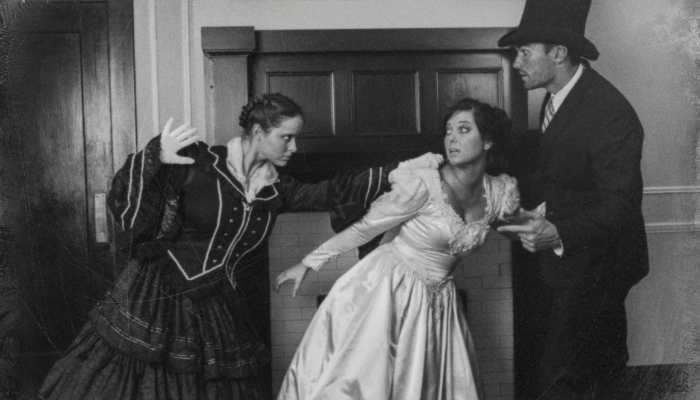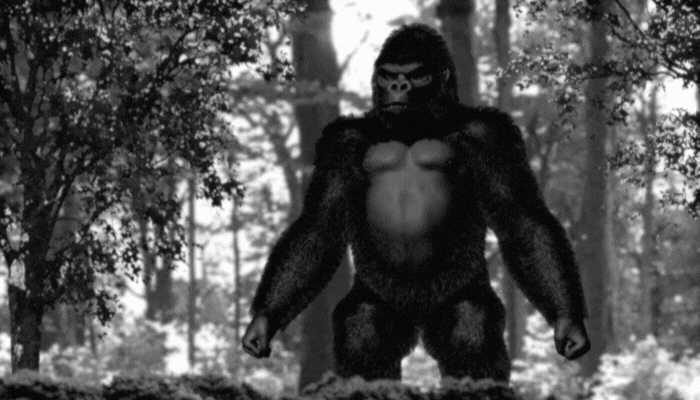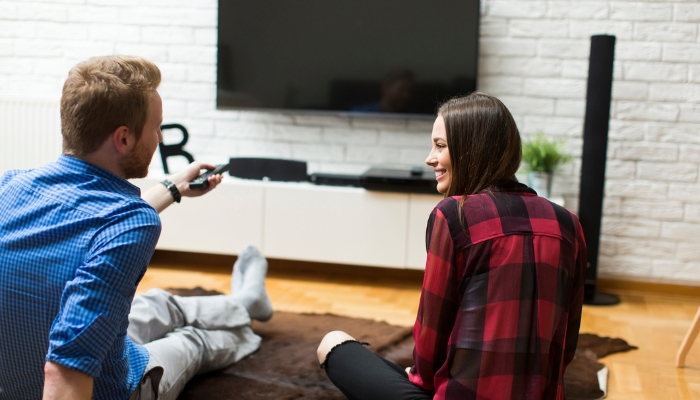Whether it's action, horror, or romance, the pull of a good movie or TV show is hard to beat, especially when it has a good film score to go with it. The best film scores convey what the story is trying to say without words, equally evoking emotional depth and response, creating urgency, indicating the setting, and easing scene transitions.
And you'd be surprised by how much film scores have evolved throughout the years, from the first silent movies to today! The history is fascinating and still a hoot to hear!
Silent Movies (1890s – 1929)

Before synchronizing sound to celluloid was invented in 1929, all films were made without sound. But that's not how people saw it in theaters! Each cinema had a phonograph, a single pianist, or a live orchestra to accompany the film!
This was when cinema organs were invented to provide those startling sound effects and make the film experience more natural. Some artists would go all out with "photoplay" music with short themes that would match parts of the film, like diminished chords for villains!
Golden Age (1930 – 1950s)

After the invention of adding sound to film, there was no stopping the creative trajectory filmmakers took. As Hollywood became the filmmaking center of the world, music and film scores took off along with it. These scores were mainly orchestral and romantic, but some composers did their own thing.
For instance, Max Steiner with King Kong (1933) used leitmotif in his work, where specific instruments and musical themes were assigned to individual characters and events. Composers still use this technique today!
Experimenting Phase (1950s – 1960s)
With Hollywood's success and the end of WWII, composers started experimenting with what they could do with their sound. They shifted from the orchestral standard and started working with more modernist sound, jazz (like in A Streetcar Named Desire), and rock music.
This era was also when films started featuring their own songs, like the hit "Oh My Darling" in High Noon, which featured huge commercial success. And that's how movie soundtracks were born!
The Synths Have Arrived (1970s – 1980s)
As technology advanced, the world of film scoring was completely broken open, with John Carpenter and his primarily synthesized score in Dark Star. This experiment was a revolution of computerized arpeggios and other tech that didn't rely on an orchestra, so theoretically, one person in a studio could compose the whole thing.
This revolution led to great films such as Escape from New York, The Terminator, Blade Runner, and Tron! But even with all that success, some composers like John Williams still honored orchestral traditions, like with Star Wars, whose soundtrack became one of the highest-selling non-pop records of all time! Other composers saw this as an opportunity to layer orchestral sounds with electronic elements, like in Star Trek or Hans Zimmer's Black Rain.
Modern Era (1990s to Present)
From the 90s to the present day, film scores have widely diversified, with several musical styles and digital sound technology intermixing to bring us unbelievable sound! While symphonic scores are still popular, there has been a distinct rise in digital audio workstations and virtual instruments, allowing artists to influence or create a film score entirely by themselves.
Any single composer can create an elaborate score on their own with a computer, but with technology like Dolby Atmos at their fingertips, composing each note is more complicated than it would appear — but it's definitely worth it!
Did You Know? Dolby Atmos creates a 3D soundscape that puts you in the middle of an almost tangible sound cone, so you feel it in your bones!
Movie Magic at Home

With the plethora of film scores, it would be a shame not to listen to them in their full glory! And that's where having the best audio equipment comes in!
In a home theater, you can have the best surround sound system to immerse yourself in every swell and low of the story as you watch. This means having anything from a sound bar and subwoofer to a 5.1 or 7.1 system strategically positioned so you don't miss out on a single note. Of course, with Dolby Atmos speakers, your experience is only heightened!
But if you don't want to watch a film to listen to the score, you don't have to! With either vinyl soundtracks or a digital sound source hooked up to powered speakers or computer speakers (and maybe a subwoofer for extra bass), you can relive every moment without actually sitting there and watching the whole thing!
Got a Score to Pick
Don't already have a stash of favorite film score soundtracks? We got you covered with a list of some of our favorites!
- Jaws (1975): composed by John Williams, conducted by Joel McNeely, and performed by the Royal Scottish National Orchestra, they created a villain with just two ominous notes!
- Star Wars: A New Hope (1977): also composed by John Williams and performed by the London Symphony Orchestra, this score was recorded over eight sessions and preserved by the Library of Congress for its cultural and historical significance.
- Lord of the Rings (2001): composed by Howard Shore, this score remains one of the best of all time, with over 13 hours of music released, including ensembles that contain up to 400 musicians and 100 leitmotifs! It's no wonder the film won 3 Oscars, 3 Grammys, and 2 Golden Globes!
- Pirates of the Caribbean (2003): composed by Hans Zimmer & Klaus Badelt, each melody was inspired by Irish sea shanties and combined with Zimmer's trademark ostinatos to create an engaging masterpiece.
- Harry Potter (2001-2011): featured four composers throughout the eight films (including John Williams, Patrick Doyle, Nicholas Hooper, and Alexander Desplat); they combined strings and haunting solo celesta to create this magical world!
- Black Panther (2018): composed by Ludwig Göransson and Kendrick Lamar, they created a balance between traditional African instruments and big sweeping orchestrals that are typical superhero fare for a unique sound!
Did You Know? The Flash Gordon soundtrack was composed by Queen, and the central theme, "Flash's Theme," became one of their greatest hits!
Smooth Listening
Now that you know the importance of film scores and have a handy list of recommendations, it's time to start listening! Of course, enjoying every note isn't possible with the right audio system, and Toton’s TV is just the place to get started! We have plenty of in-stock items that we can ship to you quickly!
And if you have any questions, don't hesitate to call our team!